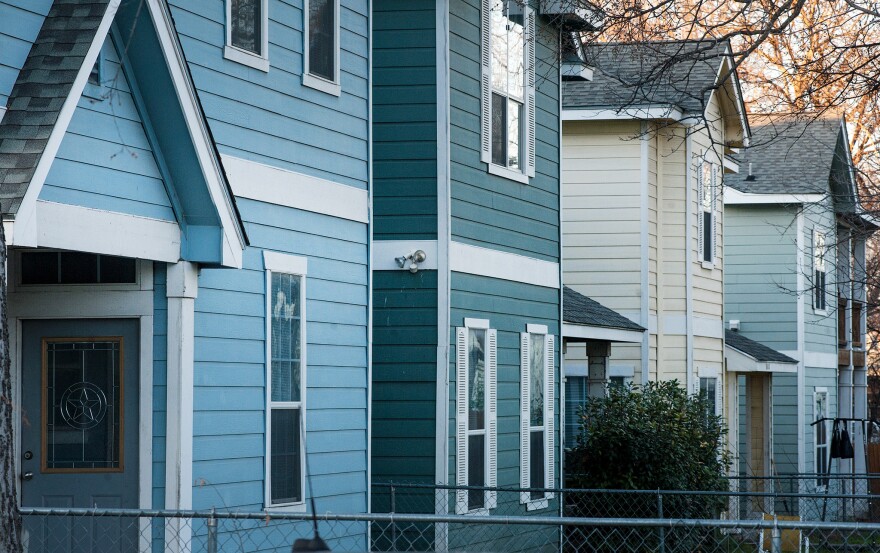From the AustinMonitor: Some call Type 2 short-term rentals miniature hotels in neighborhood homes, while others call them an honest way for residents to make money. Either way, they have become a major point of contention, and City Council is considering putting a moratorium on issuing new STR operating licenses while it tests out new regulations.
There are three types of STRs. Type 1 refers to single-family, multifamily or duplex properties that are owner-occupied, while Type 2 refers to single-family or duplex properties that are not owner-occupied. Type 3 refers to multifamily properties that are not owner-occupied.
Council discussed a resolution Thursday that would direct staff to bring back an ordinance that would – in addition to enacting a one-year moratorium – strengthen Type 2 STR inspection requirements, prohibit them from clustering in any particular area, change the way the city enforces occupancy limits for all types of STRs and prohibit “gatherings.”
The stated purpose of the resolution was to make rules for all types of short-term rentals more enforceable by the Austin Code Department in order to protect neighbors complaining about disruptive parties and other nuisances.
The discussion, however, meandered into complicated philosophical questions, such as what occupancy limits are considered appropriate and if they should change based on whether occupants are related to one another. Council ultimately opted to postpone the resolution until its next meeting.
Just prior to adjourning the meeting, Council clarified their intent to postpone further discussion on short-term rentals to Sept. 24, though no Council meeting is currently scheduled for that date. Mayor Steve Adler told the Austin Monitor that a specially-called meeting next Thursday was “a definite possibility.”
The new Type 2 STR license moratorium was proposed by Mayor Pro Tem Kathie Tovo and was passed into the working resolution on a 9-1-1 vote, with Council Member Ellen Troxclair dissenting and Council Member Don Zimmerman abstaining.
Tovo said that the moratorium would give the Austin Code Department and city staff an “opportunity to evaluate” the proposed regulations and then consider reinstating the city’s ability to provide new licenses.
Austin Code Department Director Carl Smart noted that there is already a long waiting list of people hoping to receive Type 2 STR licenses, as the city has a cap on the number that it can distribute.
The moratorium would not apply to renewals of existing licenses.
The main item related to enforcement would give Austin Code Department staff a stronger tool than it currently has by allowing it to enforce the occupancy limit through an administrative hearing process rather than through the municipal court. Council passed that change into its working resolution on a 10-0-1 vote with Zimmerman abstaining,
Assistant City Attorney Patricia Link explained that, currently, the city has to prove “beyond a reasonable doubt” that the operator of an STR is violating code. Switching to an administrative hearing process, she said, would shift the burden of proof onto the STR operator.
“In the administrative hearing context, we can include a presumption, once you see a certain number of individuals, that they have violated the occupancy limit, and then it would be on the individual – the owner of the property – to prove at a hearing that they did not violate the code,” Link said.
The gathering prohibition in the working resolution – moved by Tovo – is aimed at preventing events such as weddings, bachelor and bachelorette parties, concerts and corporate events. Holding such events or advertising them would put license-holders at risk of forfeiture.
The question that Council wrestled with the longest had less to do with enforcement itself and more to do with the occupancy limits that the Austin Code Department should actually enforce.
City Code currently limits occupancy of single-family homes to six “unrelated adults” in the area not covered by the McMansion Ordinance and four “unrelated adults” in the area covered by the ordinance, which corresponds with what many would consider Central Austin.
Smart told Council that he is in favor of removing the term “unrelated” from requirements for STRs because it creates enforcement problems. While a few Council members were in favor of this change, others argued against it.
Council Member Pio Renteria, for example, said that he would support banning Type 2 STRs altogether over leaving the term “unrelated” in the ordinance. Troxclair, on the other hand, said she felt uncomfortable with the city imposing more stringent regulations on STR operators than the community at large.
After a lengthy discussion, that question was left unresolved and will presumably be taken up when Council revisits the issue.




